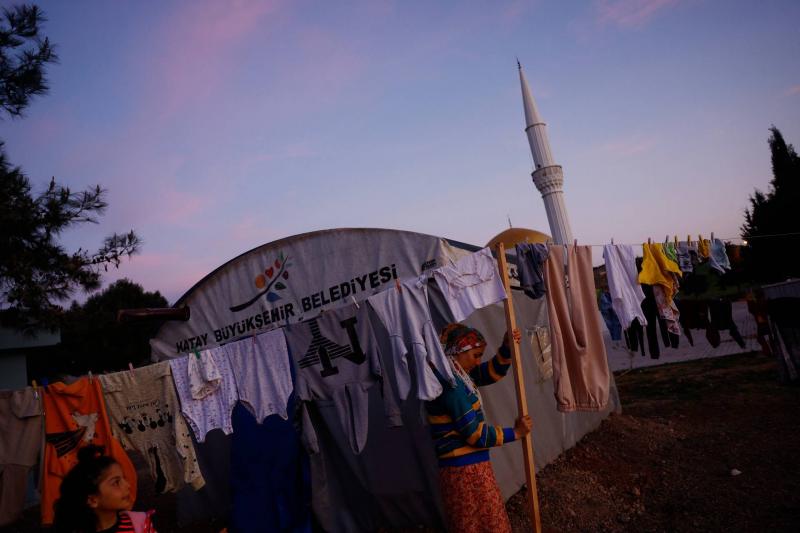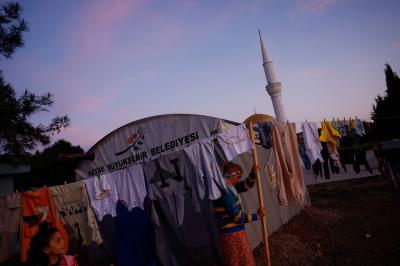After being tasked with burying hundreds of the victims of the devastating earthquakes that struck Turkey, undertaker Ali Dogru brought his wife and four children to live in an old bus next to the cemetery where he works in the city of Iskenderun, to ensure their safety. The earthquakes that occurred last month killed more than 54,000 people in Turkey and Syria and displaced millions. Survivors are sheltering in tents, shipping containers, hotels, university dormitories, and even train cars after the collapse of hundreds of thousands of buildings and the damage to others.
Shortly after the first earthquake on February 6, Ali (46 years old) moved his family to the cemetery from their damaged apartment to seek refuge in the bus. They have been living there since. Throughout his more than six years of work in the cemetery, Ali usually buried about five people daily. However, he buried 12 deceased on the first night after the earthquake, and the daily numbers surged. Within ten days of the earthquake, he had buried 1,210 bodies. Ali stated that he has adapted to living in a cemetery, but having to bury such large numbers of the dead at once has left deep psychological scars within him.
Previously, Ali worked as a butcher, and he compared the sight of people carrying their loved ones to the cemetery to those carrying sheep to be slaughtered for Eid al-Adha. He said, "When I worked as a butcher, I saw people carrying sheep in their arms. I was very affected when I saw people carrying their children and partners." With the rising death toll, he had to bring in heavy machinery to dig graves and coordinate with dozens of imams who came from across Turkey to help. Ali added, "All I wanted was one thing... to work day and night to finish this task. I didn't want people to say that the corpses were not buried," adding that there are no mass graves.
Ali explained that he buried some children and their parents who died in each other's arms in one grave, noting that he prevented people from separating them by telling them, "Death could not separate the child from his mother or father, so why are you doing that?" Ali assisted authorities in photographing unidentified bodies and taking fingerprints, blood samples, and DNA so that families could identify their loved ones.
Ali's children spend most of the day with their mother, as schools are still closed. They play among the graves with their cousins who live in a tent next to the bus. Ali is concerned about his children's mental well-being, but he has not found anyone to care for them away from the cemetery. His wife, Khadija, stated that they have seen many bodies around the bus, most of which were children.
The family suffered from hunger in the first three days after arriving at the cemetery while everyone was busy with the funerals. Khadija (43 years old) hopes that the family will be able to return to their home by the end of April. She said, "I hope to return home after the holiday. Where can we go if we leave this place? I don’t want anything. I just want my home."




